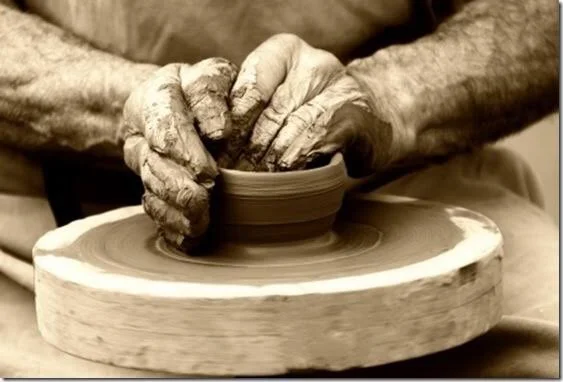Readings for the day: Matthew 21:23-46, 22:1-14, Mark 11:27-33, Mark 12:1-12, Luke 20:1-18, John 12:37-50
“Therefore they could not believe. For again Isaiah said, "He has blinded their eyes and hardened their heart, lest they see with their eyes, and understand with their heart, and turn, and I would heal them." (John 12:39-40)
“For many are called, but few are chosen." (Matthew 22:14)
These are some difficult words to hear. How is it that God would choose some and not others? How is it that God would open the eyes of some and not others? How is it God would regenerate some hearts and not others? How is it that God would actively blind eyes and harden hearts to the message of the gospel? Matthew even takes it a step further. Many are called but few are chosen? Is God playing some cosmic game of “duck, duck, goose?” Is that how salvation works?
I will not pretend to probe the mysteries of divine election in this post. Nor will I seek to untangle the Gordian knot of predestination vs. free will. I imagine that debate will last until Jesus’ return. Perhaps even beyond. It is not given to us to understand these things, only to accept them. And this is where our faith is put to the test. Do we believe God is good? Do we believe God is wise? Do we believe God is true? Do we believe God has a plan? Do we believe God is worthy? Do we believe God is righteous? All these things are called into question the very moment we read verses like these and think to ourselves “this doesn’t seem fair.”
It is a dangerous thing to question the nature and character of God. It is a fearful thing for the clay to say to the Potter, why have you made me thus? It is arrogant to demand God give an account to us or answer to our flawed notions of justice or meet our democratic standards of fairness. This is where growing up in America where our leaders must answer to the will of the people hurts us. Our cultural context works against us as we read. God is no democratically elected leader. He is our King. Our Lord. Our Sovereign. He created the universe and all that is in it. We are dust. We are ashes. We are nothing and it is only because God has decided to set His love on us that we are worth anything at all. It is only because God decided to make us in His image that we have dignity and honor. But these things are not our own! They are conveyed to us by God Himself for His own mysterious purposes.
So what if God – desiring to make known His power and reveal His glory – decided to make some vessels for honor and some for dishonor? What if God – desiring to make known His justice and righteousness – raises up some for glory and others for destruction? Does this make God unjust? Does this make God unfair? Does this call into question God’s goodness and righteousness? If we are honest, there can be only one answer. What right do we – created beings one and all – have to question our Creator? As the Apostle Paul says, “What right does the clay have to question the Potter?”
Here is where the rubber meets the road when we talk about surrender. Submission. Sacrifice. We lay it all in His hands. We give it all to Him. He alone is worthy of all glory and honor and power because He stands outside time and space and creation. He is far removed from any of our human notions of justice and righteousness. He does not answer to His creation. Furthermore, humility demands that we accept the fact that He sees far more than any of us do. He has an eternal perspective we cannot grasp. His wisdom is infinite and His knowledge without end. What seems paradoxical to us is logical to Him. What seems contradictory to us makes perfect sense for Him. What seems impossible to us is well within the bounds of His authority and rule and reign. At the end of the day it comes down to this…God is God and we are not. We reject this simple truth at our own peril.
